
11 minute read
REGAINING WHAT’S BEEN LOST
By Dee Shore
At Sankofa Farms, NC State doctoral student Kamal Bell looks to agriculture and to the past to break down educational barriers for young African American men.
For the Akan people of Ghana, the word “sankofa” is associated with a symbol: a mythical bird with its feet planted forward, its head turned backward and its mouth holding an egg. The word’s translation: It’s OK to go back and get what you forgot.
The word reminds Kamal Bell that there’s wisdom, power and hope in knowing his African roots, and it calls him to share that knowledge with the younger people who will shape our future. Bell puts the word into action as a farmer, teacher, mentor and doctoral student in agricultural and extension education. >
Bell, 29, is founder and CEO for the 12-acre Sankofa Farms in Orange County, North Carolina. There, he raises leafy greens and other vegetables for people who live in communities without easy access to healthy foods. He also raises honeybees.
But there’s much more to his farm than agricultural production.
“I did not want to just have a regular farm where we produce food and went to a farmers market,” he says. “I wanted to have more of a meaningful impact.”
And there are clear signs on his farm that this unconventional farmer is having just such an impact.
The Journey to a Mold-breaking Farm
Bell doesn’t come from an agricultural background, and the path to farming wasn’t a straight one. As a child growing up in Durham, he loved reading about animals and being outdoors, and that led him to study animal science at North Carolina A&T State University.
There, he gained experience on a university research farm, where he learned about organic vegetable production. Then he interned with a Black farmer. “That’s really when my interest in agriculture started to be cultivated,” he says.
He went on to earn a master’s degree in agricultural education from A&T and taught agriscience at a middle school in Durham. There, he saw his students gravitate toward the garden, and that interest—coupled with his desire to bring healthy food to areas without it—grew into Sankofa Farms.
The Hum of Bees: the Voice of the Farm
At the farm, 40 beehives that Bell keeps are central. In addition to pollinating the plants he grows, the bees produce income. Bell sells honey on the

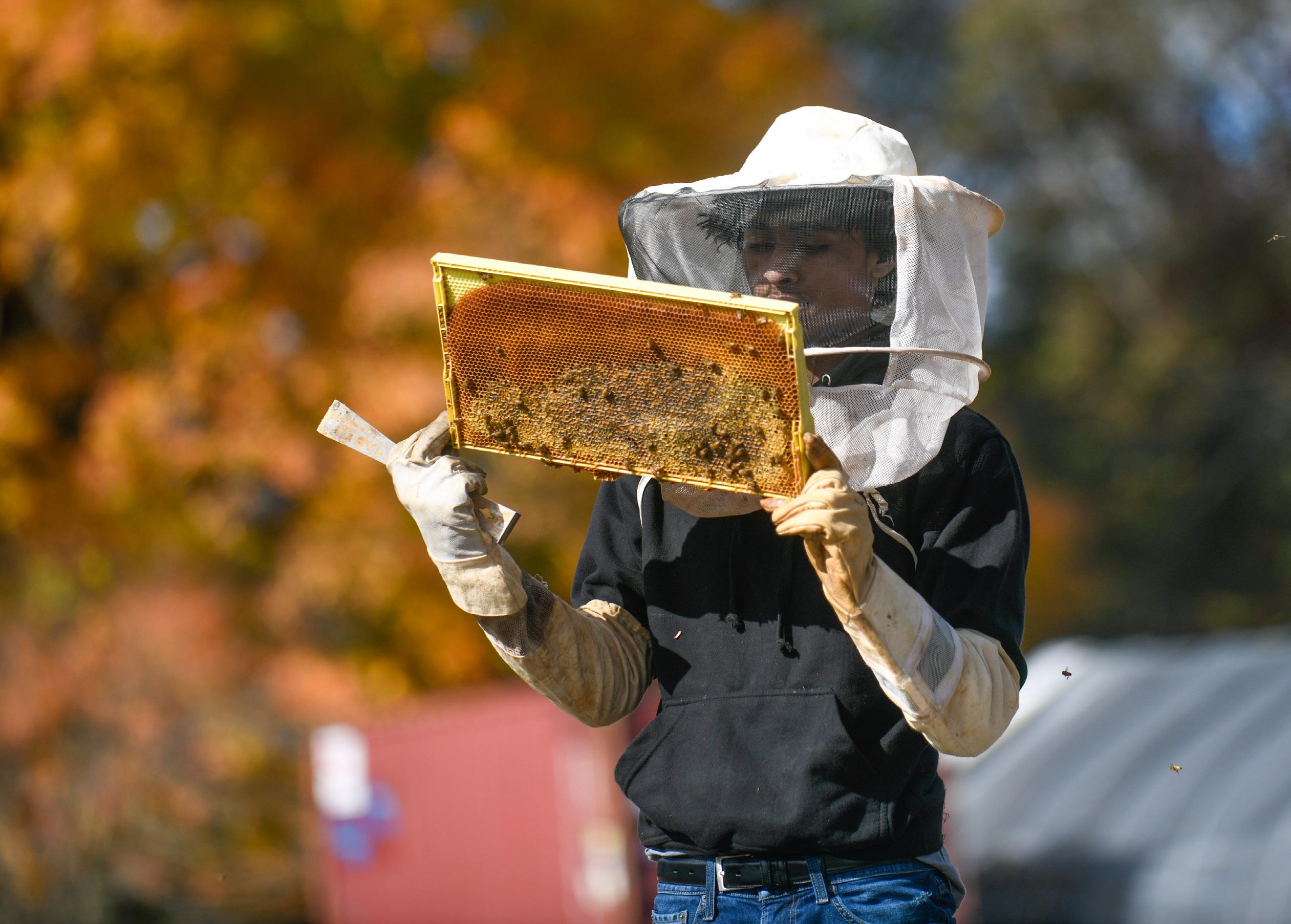
internet, and he’s preparing to offer beeswax. He also rents hives, offers an in-person introduction to beekeeping called Bees in the TRAP—short for Teaching Responsible Apiary Practices—and has launched an online course called Honey at Home.
The bees also play an integral role in Bell’s highest priority on the farm: the fledgling agricultural academy he conducts for African American males ages 11 and up. The students work on the farm on Saturdays, and as they work, Bell teaches them about farming practices, the science and technology of farming and the benefits that farming brings to communities. Most of the students are certified beekeepers.
“Knowing that honeybees can be traced back to ancient Africa, it ties into our overall educational mission at Sankofa,” Bell says. “They’re living. They’re moving. And they can generate revenue for people. The students are interested in that, and so it’s a bridge to education.”
Building a Discipline-spanning Educational Bridge
The bridge that Bell is building around the study of bees and of agriculture spans diverse subjects, from history to the STEM disciplines of science, technology, engineering and math.
“Agriculture is the basis of everything,” Bell says. “So all the concepts at some point come back to STEM. Engineering: students have had to develop and design the caterpillar tunnels we have on the farm. We’ve had to physically build them as well and think about how we can improve upon them. >
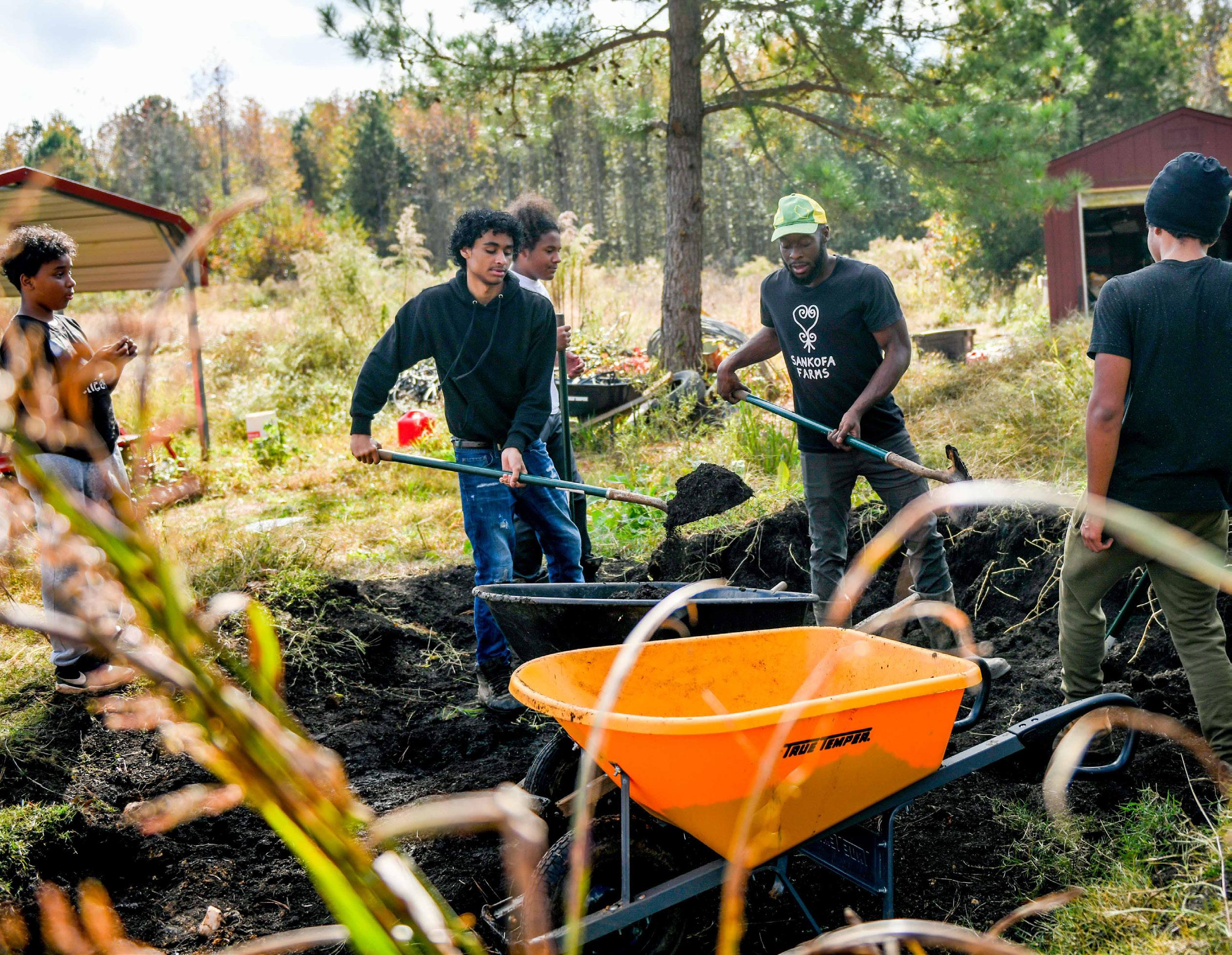
Mikal Ali
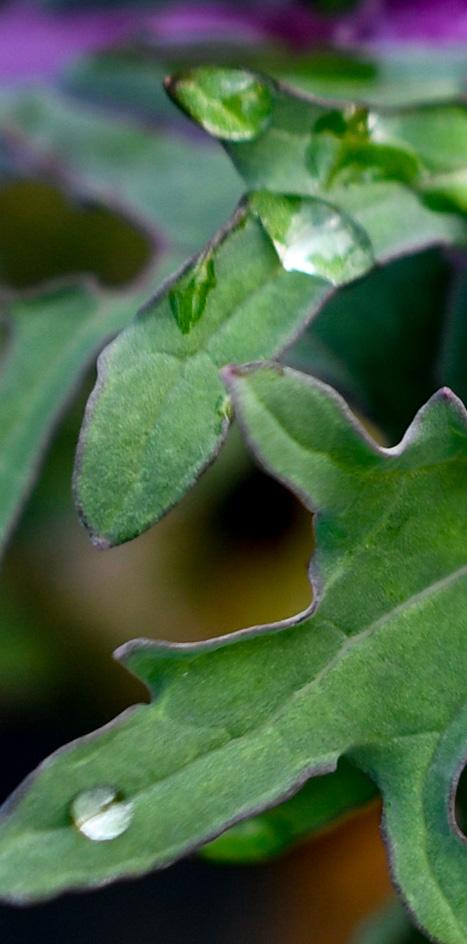
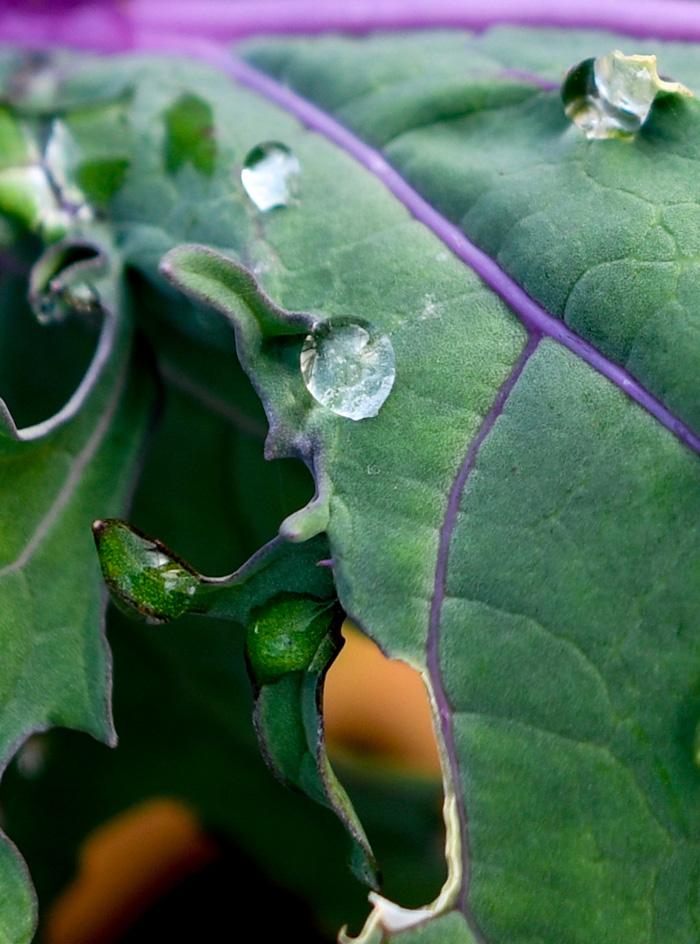
“The technology: We have a drone out here now, and we’re looking at how we can automate more of the systems at the farm,” he adds. “Then the science—we’re talking about microbiology. We’re talking about microorganisms. And we’re talking about producing food.”
Lessons also center on the importance of public service, Bell says. And those lessons that aren’t lost on 10th grader Mikal Ali, who’s been coming to the farm academy for four years.
Though the work on the farm is hard, Mikal is motivated by the fact that some of the food produced there goes to organizations that are helping alleviate food insecurity in Durham communities.
“Being able to have nutritional food allows you to think better and allows you to have the right energy, allowing yourself to truly think and be the best that you can be,” Mikal says.
Working on the farm, he says, “has opened my eyes to the importance of helping your community and helping others.” When others are counting on you, he adds, “You can’t stop. It’s just ever-running energy.”
Mikal hopes to channel that energy into becoming a school psychologist to help students face problems at home and in life. He also wants to build a school geared for Black students—a dream he shares with his teacher. “Having an education center on the farm is the ultimate goal,” Bell says. “If we want to create a sustainable food source, you have to integrate the youth into that. The people aspect is the most important, and the youth are the future. They need the foundation to be able to grow.”
Achieving that sort of foundation won’t be easy, Bell says. It must start with sankofa—going back to the past, understanding African American history and building forward from there. He points to the teachings of the late African American psychologist Amos Wilson.
“He stressed the importance of African Americans using their history and our culture to build institutions for ourselves. That’s where the change for us lies—in understanding our culture,” Bell says. “And if we don’t understand our history and culture, we can’t understand the context and why things are going on in the present day.”
When people know their history, Bell adds, they can control their destiny.
“That’s not happening in society right now. Someone else has been telling our story, someone else has been dictating how we maneuver, how we develop identity of ourselves. And if we look at it, we can see that those ideas don’t work for us at all,” Bell continues. “The only way that we can begin to recreate and reimagine ourselves is if we learn about who our people are and learn about our ancestors.” >
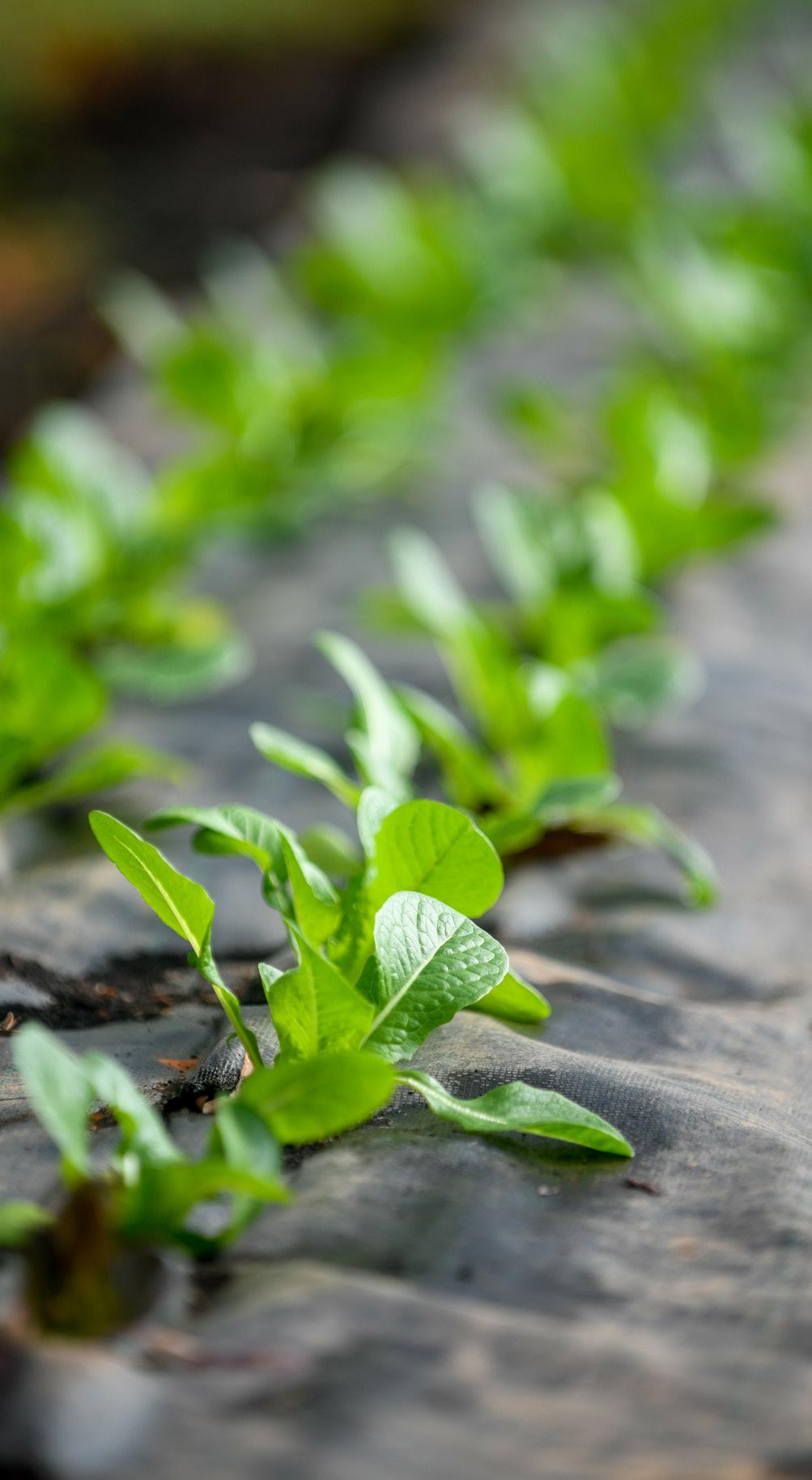
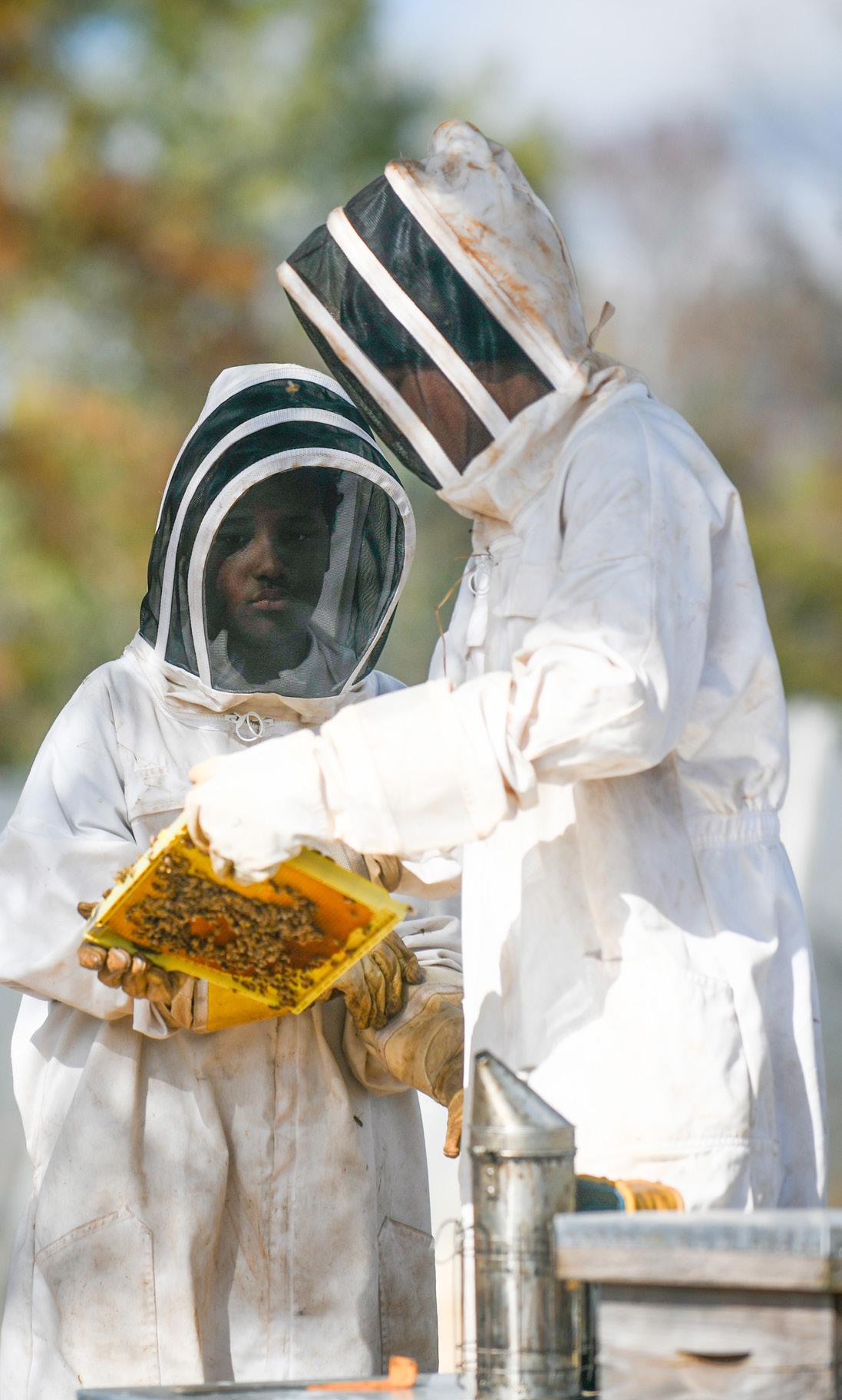
For Bell, the contributions of Africans and African Americans to agriculture are powerful examples.
“How we contributed to the landscape of agriculture has often been lost and been left out. We have such a connection to the land and contributed so much, and I think a lot of the issues that we face today can be solved if we start looking back at agriculture,” Bell says.
That sort of understanding, he adds, can help bring equity to modern food and farming systems and to education.
“We need to start challenging ourselves to restructure how education looks for Black children. It needs to be in Blackled, Black-run, in Black-controlled spaces. We can center education around solving problems for our people, because education is not doing that,” he adds. “That’s the only thing that’s going to work for us.”
Learning as a Way to Overcome Obstacles
As a doctoral student, Bell is focusing on the barriers that keep African Americans from entering agriculture in the United States. He’s interested in breaking down those barriers.
“Racism is a barrier, and capital is a barrier. Mentorship— there aren’t that many African American agricultural
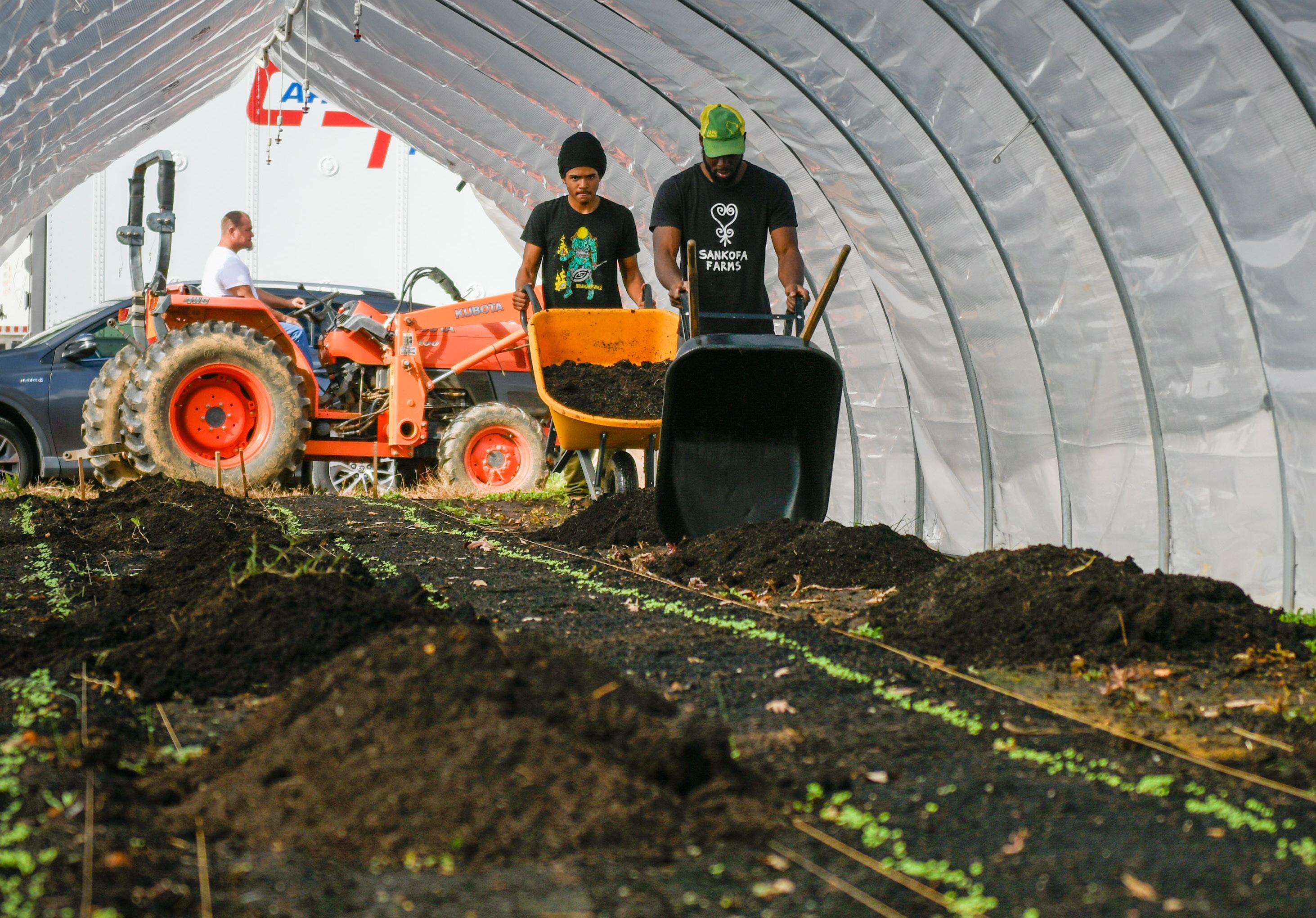
professionals,” Bell says. “Those are just some of the things that I’ve encountered, but as I conduct my studies, I’ll have a better, more in-depth answer.”
Joseph Donaldson, an assistant professor in the Department of Agricultural and Human Sciences, is one of Bell’s academic advisors. He says he expects Bell’s doctoral work to yield a better understanding of how to provide African American men with better college access, academic advising and career development services.
“His work,” Donaldson adds, “creates equity, access and opportunity.” If the students who take part in Sankofa Farm’s academy are any indication, Bell’s efforts are indeed making a difference.
Jamil Ali, Mikal’s brother, says his interactions with Bell and with his fellow Sankofites have grown his skills in self-control, persistence, public speaking, relationship building and integrity. Through his work at the farm, he says he’s also gained an appreciation of self-reliance, tempered with a willingness to accept help.
“Mr. Bell has really taught me everything—not just about farming and beekeeping,” he says. “He talks to us, and he teaches us life lessons … that will be a big help for me in whatever I do in the future.”

Creatures Great and Small
Students’ eyes light up as they watch a chick peck its way out of the eggshell—the pinnacle of the 4-H embryology project. Those moments of wonder happened with 56,000 students in schools across North Carolina in 2019, satisfying state science requirements.
In Johnston County, 33 classes were anticipating that experience when schools closed in February 2020.
4-H agent Courtney Stanley and program associate Laura Pilkington hatched a new plan. To share those moments virtually, they trained the office iPad on an incubator of eggs in Pilkington’s office, adding a fan to cool the tablet and repositioning it often.
“That way, if there was a chick about to hatch, we would definitely get that one on camera,” Stanley says. “Then I would get on Facebook Live on my phone so that I could go through and answer any questions that we had on the newsfeed.”
In two hours, her video reached more than 95,000 viewers and was shared nearly 500 times.
“It was a huge, huge success, way more than we had ever anticipated,” Stanley says. And while schools are reopening this spring, the virtual option is another way to share science lessons and special moments. “We’re going to be doing the webcam again this spring,” Stanley says.
“Obviously this is a very hands-on program and the very first option we want is to let the kids experience it firsthand. We know that if students have six hours of experience with a topic, they’re likely to remember it.”
Stanley has also done virtual sessions on butterfly life cycles. Pilkington created online albums of images to share with others across the state.
Similar innovation took place last spring with much larger animals: goats, sheep, pigs and calves in 4-H livestock shows and judging competitions.
After working with an animal such as a pig for four months, caring for it twice daily, 4-H members head to the show ring, where market class and showmanship competitions can be decided in as little as 20 minutes. But that wasn’t possible last spring.
“We realized we couldn’t evaluate showmanship traditionally,” says Brent Jennings, 4-H livestock Extension associate in the Department of Animal Science. “So what we did from a virtual standpoint was to have the kids write an essay about what they learned. We also allowed them to do virtual barn tours, where we could have them do public speaking. We did a TikTok video competition and a costume contest where kids could dress up with their animals. They loved that.”
That’s how three North Carolina 4-H’ers came to be featured in a New York Times article. Rockingham County’s Katelyn Hewitt, one of the barn tour winners, opened her video with a cartwheel. Pasquotank County’s Jacob Meads, an intermediate essay winner, was quoted. Tyrrell County’s Mackenzie Odom and Mr. Eyelashes, her goat, were also a hit.
While modified shows are now possible, virtual options such as the essays and TikToks will be refined, Jennings says. They’ll be used judiciously to avoid causing digital burnout.
4-H agents who have missed the face-to-face work helping kids with their projects have teamed up to do weekly livestock judging clinics, offered live and via archived recordings.
This spring, more than 100 4-H’ers have signed up for livestock skillathon practice sessions with digital resources and prizes, coordinated by an NC State student. And a Meat Goat Leadership Institute typically held at NC State will be virtual this year, with tours of an Illinois farm.
Whatever 2021 brings, 4-H’s approach of learning by doing won’t change.
“Working with animals is an avenue to learn about responsibility, to learn about record keeping, to learn about ethics and morals and competitiveness,” Jennings says. “Ultimately, it’s about animals making us better people.”
— D’Lyn Ford
Want to learn more?
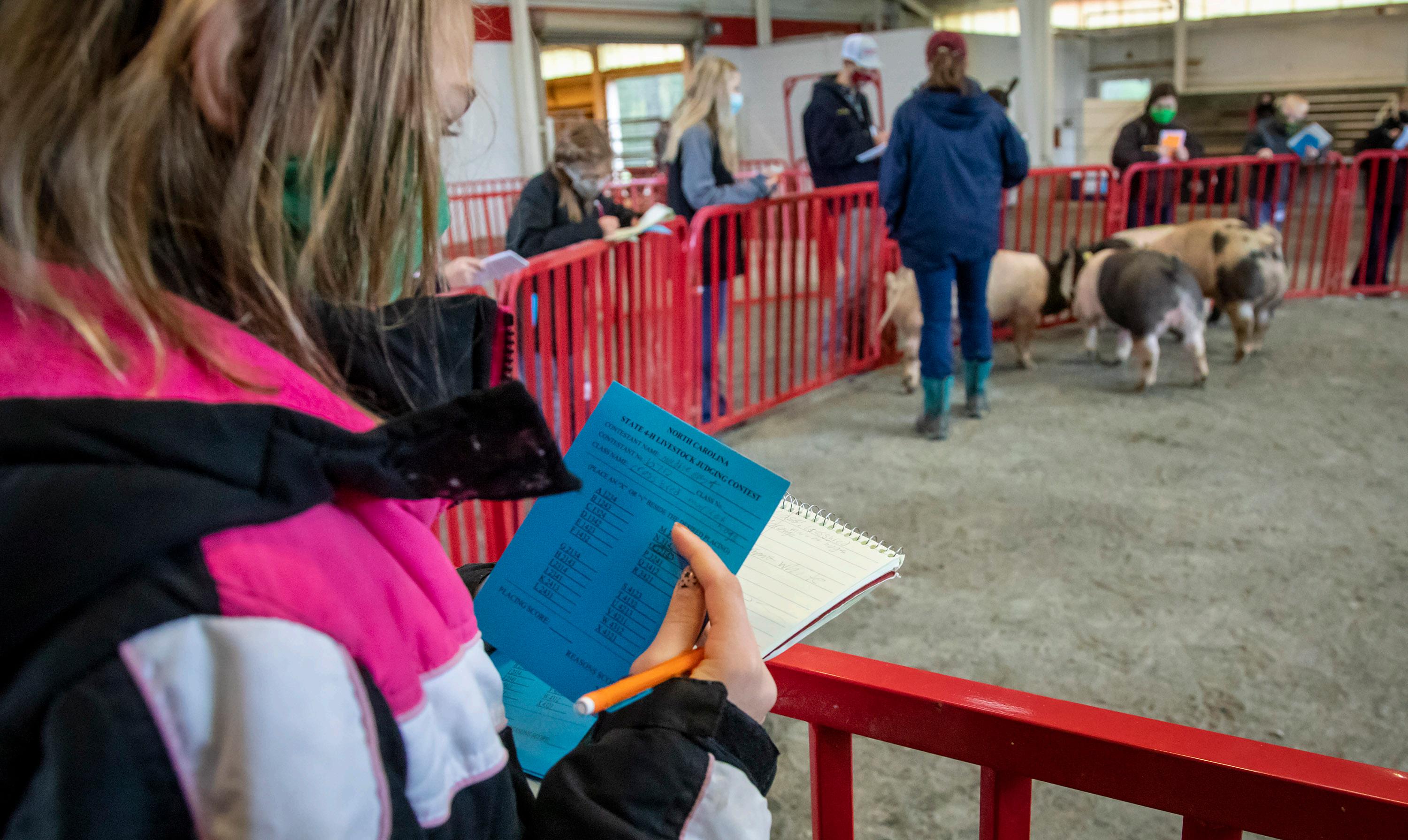
Whether you’re interested in beekeeping or beef cattle, 4-H has a project for that. Contact your county Extension center for information about local programs.





